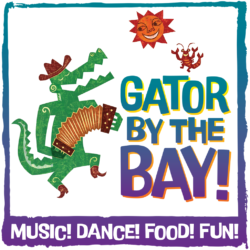

The difference between Cajun vs Creole can be confusing for people outside (and some within) Louisiana. The people, culture, and food have very different histories but we can all agree that both groups have deliciously wonderful cultures. Still confused? Do not fear, we’re here to clear that up for you!
Let’s begin by getting super technical here. The dictionary defines each as such:
-
Cajun: A member of any of the largely self-contained communities in the bayou areas of southern Louisiana formed by descendants of French Canadians, speaking an archaic form of French.
-
Creole: A person of mixed European and black descent, especially in the Caribbean, speaking a blended version of French, Portuguese, Spanish, English, West African, and Taino.
To break it down into even simpler terms, Cajuns are a group of people, mainly living in the state of Louisiana, descending from exiled Acadians (descendants of French colonists who settled in Acadia during the 17th and 18th centuries). And yes, they do speak a form of French commonly referred to as Cajun French. And the term Creole originally described those of mixed French, Spanish and African blood who migrated from Europe or were born in Southeast Louisiana. Creole also used to be used by French settlers to distinguish persons born in Louisiana from those born in the mother country or elsewhere. The term has expanded and now embraces a type of cuisine and a style of architecture.
Now that we’ve gotten through the technical part, let’s dive a little deeper into the exciting differences between the two. We’re going to channel Jeff Foxworthy for a minute and pull out the ever-useful phrase, “You might be Cajun or Creole if…”
You might be Cajun if:
- You say chere (pronounced shaa, with an “a” as in cat). Chere is French for dear: used by Cajuns, with their own distinctive pronunciation, as a term of endearment.
- You know how to make a proper roux (pronounced roo). Roux is a classic Cajun concoction made by blending oil and flour and cooking them together. A roux is used in Cajun gumbo, stews, fricassees, etc.
- The only four seasons you know are: shrimp, crab, crawfish and oyster.
- You sound nothing like Harry Connick Jr. or those actors from “The Big Easy.” (A Cajun accent is hard to recreate!)
- Your name ends in “-eaux” or “-oux”. (Thibodeaux, Babineaux, etc.)
You might be Creole if:
- You know how to dance to Zydeco music (seeing as the Creole people created Zydeco).
- You speak Kouri Vini, a dialect containing strong elements of French and African languages.
- You make a mean Shrimp Creole that was passed down from ya mama.
- Your favorite band has an accordion player and fiddler, but no guitarist.
As you can see, Cajuns and Creoles have a fascinating history, DELICIOUS food, and beautiful culture. We here at Gator by the Bay are honored to represent both of these groups at our festival. Come experience and enjoy our Cajun and Creole food, music, and dancing!


